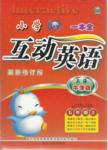题目内容
The experienced teachers try their best _____ the younger ones _____experience.
A. to help…getting
B. help…get
C. to help…to get
D. helping…get
练习册系列答案
 互动英语系列答案
互动英语系列答案
相关题目
题目内容
The experienced teachers try their best _____ the younger ones _____experience.
A. to help…getting
B. help…get
C. to help…to get
D. helping…get
 互动英语系列答案
互动英语系列答案